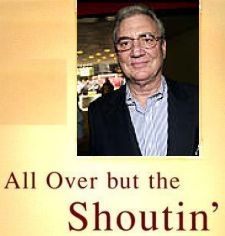 The reign of Howell Raines came to a bitter end |
For those in the media, and perhaps for a few others, the most gripping, real-life story to emerge last year involved a series of unprecedented scandals at the The New York Times, the ‘grey lady of journalism’.
On May 1 2003, Jayson Blair, a New York Times reporter, tendered his resignation when it was revealed that he had fabricated and plagiarized dozens of articles. In the month that followed, the internal scandals at the Times became hot news.
Rick Bragg, a Pulitzer Prize-winning national reporter, resigned after he made derogatory comments about Times reporters’ use of stringers. Reporters and editors who had been upset by the imperious and autocratic leadership style of then editor Howell Raines felt emboldened to speak out.
Slightly more than a month after the scandal broke out, Raines and his managing editor, Gerald Boyd, were asked to leave the paper by Times publisher, Arthur O. Sulzberger Jr. Bill Keller, the man who had been passed over for the top editorial job at The New York Times two years earlier, in favour of Raines, was then elevated to the executive editor’s position.
The trials and tribulations of the Times made for compelling reading (nothing like airing your dirty linen in public). Raines, who subsequent to leaving the Times took on teaching duties at the Columbia School of Journalism, has written a sweeping and often scorching 21,000 word essay, titled ‘My Times’, for the May issue of The Atlantic Monthly, wherein he sets about to re-write history, absolving himself of much of the blame for the travails which beset the Times in 2003.
“Two distinct and parallel cultures (existed): the culture of achievement and the culture of complaint … a large percentage of Times reporters and editors opt(ed) out of meritocratic competition within a couple of years of joining the paper, with many simply passing their time until retirement … one important mission I did not get around to was finding the kind of critics capable of becoming trademark names in every field of aesthetic or consumer interest — everything from wines to Broadway.”
“My greatest joy in newspapering came from the quarter of a century … at The Times with the most talented staff in the business. My greatest frustration was that The Times was seldom as good as it could have been, given its advantages in money and prestige.”
Raines accepts responsibility “for the failure to catch” Jayson Blair, but claims he didn’t know about Blair’s error-prone ways until the writer left the paper. He says no one told him.
Cynthia Cotts, in the Village Voice, finds Raines’ disavowal mystifying at best, disingenuous at its worst, while Jack Shafer in his article, published on the Slate website, suggests that Raines’ is a “very selective account.”
According to Newsweek’s Periscope column on the Raines essay, “Atlantic Monthly editor Robert Vanes, who edited the story, told Newsweek that Raines’s original draft was a third longer — and even meaner. ‘If anything, we worked to tone down sections,’ said Vanes.”
Times spokeswoman Catherine Mathis when asked for a response to Raines’ screed, simply avers: “We wish Mr. Raines well.” Noting that Raines calls The Times “indispensable,” Mathis added, “We agree. And this is due to the inspired work of Times men and women over decades.”